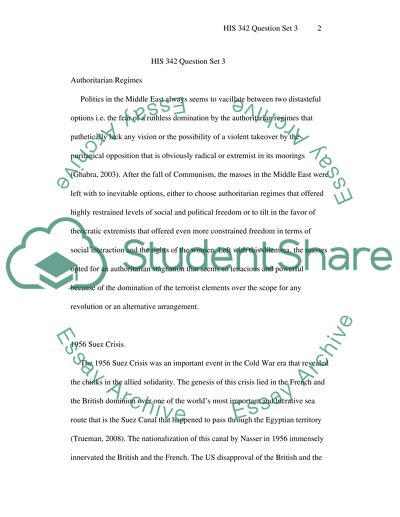Cite this document
(Authoritarian Regimes: Politics in the Middle East Assignment, n.d.)
Authoritarian Regimes: Politics in the Middle East Assignment. Retrieved from https://studentshare.org/history/1519619-his-342-question-set-3
Authoritarian Regimes: Politics in the Middle East Assignment. Retrieved from https://studentshare.org/history/1519619-his-342-question-set-3
(Authoritarian Regimes: Politics in the Middle East Assignment)
Authoritarian Regimes: Politics in the Middle East Assignment. https://studentshare.org/history/1519619-his-342-question-set-3.
Authoritarian Regimes: Politics in the Middle East Assignment. https://studentshare.org/history/1519619-his-342-question-set-3.
“Authoritarian Regimes: Politics in the Middle East Assignment”, n.d. https://studentshare.org/history/1519619-his-342-question-set-3.


